Reviewing World War II filmography I remembered a 1966 British production, which I saw many years ago, entitled Triple Cross . Directed by Terence Young (author of some of the films in the Bond saga such as 007 vs. Dr. No or From Russia with love ) and starring Christopher Plummer, tells the "true" story of Eddie Chapman, an inmate convicted of robbery in Jersey who, in exchange for being released, offers his services as a spy to the Germans when they occupy the island.
The film is based on a real character and putting the true word in quotation marks is because he was not happy with the portrait they made of him because, in his opinion, it adapted too freely the autobiography written by Chapman himself in collaboration with the journalist Frank Owen, The real Eddie Chapman story . But considering how it was an espionage plot, it is not surprising that that version supposed one more face. And it's that good old Eddie played with two decks and what he did was fool his rescuers. Let's see how.
His name was Edward Arnold Chapman and he was born in Burnopfield (Durham, northeast England) in 1914. He was the son of a naval engineer turned hotelier and soon stood out for being both brilliant and messy in life, something that, by the way, seemed a family characteristic (he had three brothers), so little by little he entered the world of petty crime. He may have straightened out when at seventeen he joined the Coldstream Guards -those who guard the Tower of London, where he himself was stationed- but it only lasted nine months, which it took him to elope with a girl taking advantage of a permit.
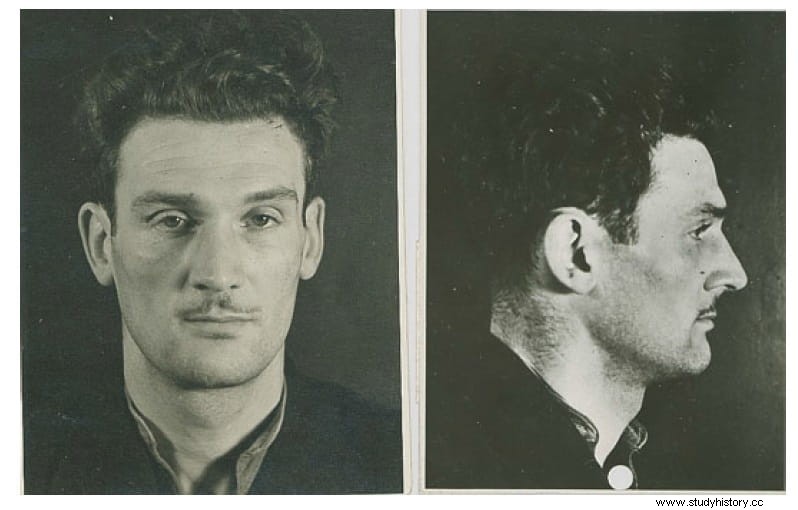
He was arrested eight weeks later, having impregnated her; he had to serve eighty-four days in Aldershot Military Prison, after which he was dishonorably discharged. Installed in London's Soho, the varied jobs he tried were not enough to satisfy the lifestyle he led, always with gambling debts and excessive spending on alcohol, so he took the final step to become a professional criminal, joining a gang of West End dedicated to robberies of safes in insurance offices.
He sporadically spent time behind bars, but prison only served him to meet other colleagues, expanding both the scenarios of operations and his own activities, by incorporating blackmailing women with whom he was photographed in compromising situations into his resume. A coup in Edinburgh forced him to disappear, choosing Jersey to hide; but he was finally arrested after a spectacular and unsuccessful escape attempt by jumping out of a restaurant window. Fortunately, being on that small island, the sentence was lighter -two years- than the one that would have fallen in Great Britain -fourteen-; yes, the insular penitentiary was especially sober and uncomfortable.
There it was, in the shadows, when the Germans seized the Channel Islands. It was then that he contacted the German commanders, offering to work for them as a secret agent; luckily, he had killed time studying his language and put it into practice with his proverbial verbiage. The proposal was accepted and he was transferred to Fort de Romainville, in Paris, where he was placed under the orders of Dr. Graumann, code name of Captain Stephan von Gröning. It was the man from the Abwehr in the region, who took him to La Bretonnière-la-Claye, near Nantes, to train him in the use of explosives, radio communications, parachuting, and other common techniques.
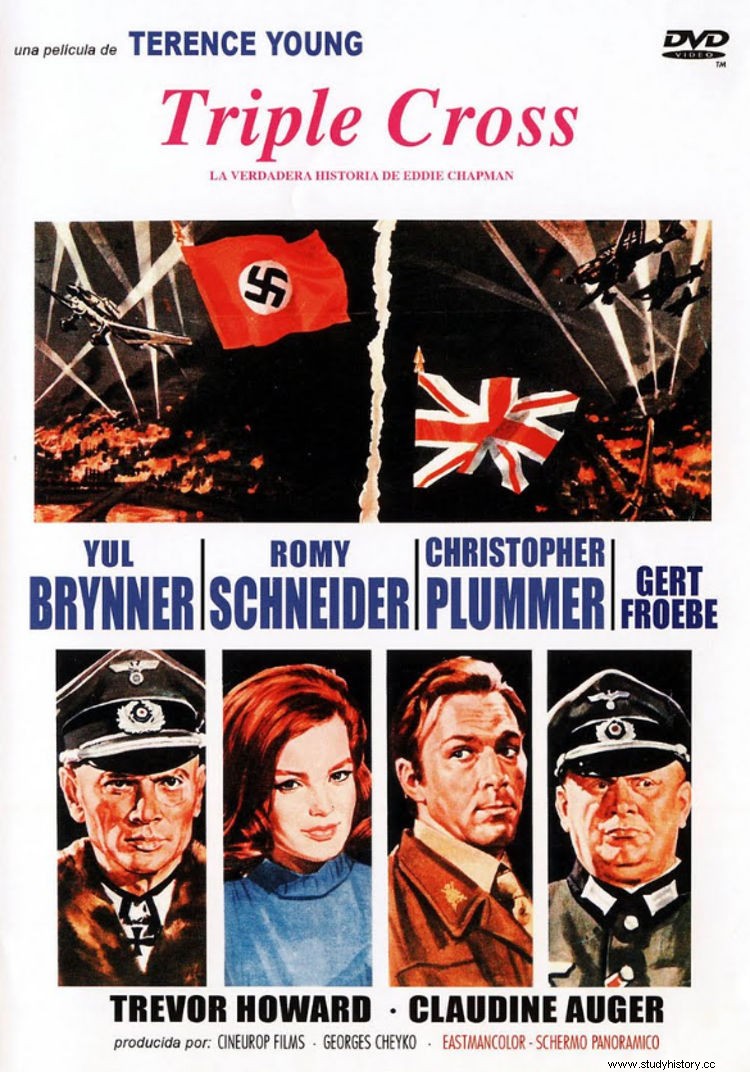
The plan was to send Chapman, who had been nicknamed Fritz , to England to commit sabotage, his first target being the De Havilland aircraft factory of Hatfield. That's where the DH.98 Mosquito came from. , a fast and highly versatile aircraft that served as a bomber as well as a fighter, as a reconnaissance device or as a transport, although its main victim was the Kriegsmarine because it proved to be especially effective in maritime attack.
On December 16, 1942, after an eventful flight in which he suffered a nosebleed due to a defect in his oxygen mask, a Focke-Wulf he dropped him by parachute over Littleport (Cambridgeshire) equipped with a radio, revolver, quinine matches (for invisible writing), cyanide capsule and a thousand pounds sterling. But they were waiting for him, because the British secret services had decrypted German messages about that mission thanks to the fact that they had a model of the Enigma machine. . Section B1A, the counterintelligence operational arm, mounted a hunt-and-seizure operation that mobilized local police under the official pretext of searching for a deserter.
However, it was not necessary; Chapman himself turned himself in, offering himself as a double agent with some swagger. Questioned at Camp 020, the technical name for Latchmere House (a south London estate where he took enemy spies), he convinced the officers that the outlandish story he so recklessly told had to be true. He was then given the codename of Zigzag , assigning Ronnie Reed as an officer, a BBC radio engineer recruited by MI5 who would later indirectly star in one of the most curious episodes of the war, by lending his face to the passport photograph that was put in the pocket of a corpse thrown into the sea with false information about Operation Overlord .
On the night of January 29, 1943, Chapman and his new bosses staged a fake attack on the De Havilland factory. managing to deceive the Teutonic observers. It was time to get his man out of there and he, with the help of MI5, memorized a convincing story of the events. But it turned out his bosses didn't want to send a U-Boat to look for him, as was customary, suggesting in exchange that he return via Lisbon. As the British wanted him in enemy territory to gather information on his behalf, they helped him enroll him under the false name of Hugh Anson in the crew of the City of Lancaster , a merchant ship with that destination.
Once in the Portuguese capital he went to the German embassy and revealed his true identity. To clear suspicions, he offered to place a bomb in the ship's coal locker and they accepted the idea, providing him with two explosives, which, however, instead of detonating, he handed over to the captain. Of course, back in England he submitted to the City of Liverpool to a search as detailed as it was false, hoping that the spies would report it and thus exonerate Chapman by pretending that the artifacts had been discovered. It was convincing and, together with the interrogation that Von Gröning subjected him to, solved any possible suspicion.
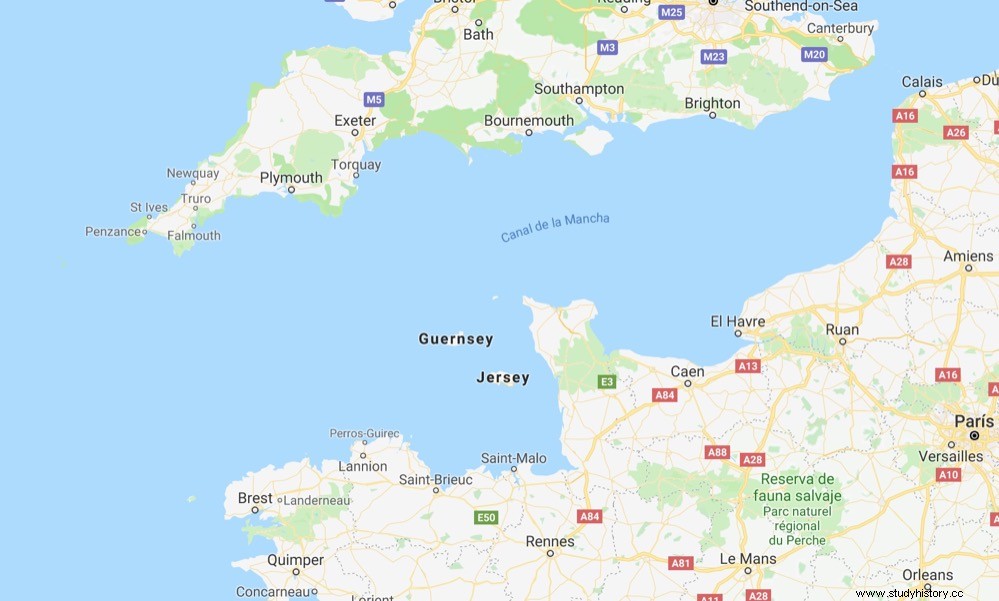
Everything had gone so well that this English criminal turned into an unlikely hero, whose nickname Fritz changed to the affectionate Fritzchen , even he was decorated; he said with the Iron Cross, although it was only awarded to military personnel, so it would be more of a Kriegsverdienstkreuz second-class for war merit (or maybe not, considering he was enrolled in the Wehrmacht as lieutenant). He also received a succulent cash reward, a yacht and admission to the espionage school that the Germans had in Oslo, where he dedicated himself to photographing agents with the idea of passing their images to MI5.
In Norway, by the way, he was about to spoil it because of his fondness for skirts, the same one that made him have a girlfriend on each side. If in England he was still engaged to Freda Stevenson, that girl with whom he eloped from the Coldstream Guards (her secret service was in charge of supporting her and her girl), in the Scandinavian country he entered into a love relationship with Dagmar Lahlum. She had been secretly sent to him by Von Gröning to control him, so it could have been a huge mistake for Chapman to confess that he was a double agent; but it turned out that Dagmar was too:a Norwegian resistance infiltrator who was not only delighted to discover that she didn't have a Nazi for a boyfriend, but also that she helped him as much as she could.
Probably one of the things that astounded Dagmar, as well as MI5, was the plan that Chapman laid out to take advantage of von Gröning's promise to reward him with a seat near Hitler during a rally he was holding to attack the Führer planting a bomb. It was practically suicidal, since even if he left before the explosion, the security services would quickly connect the dots. The idea of a Chapman imprisoned and interrogated under torture did not please MI5 -although Churchill was interested in the subject- because they considered that his agent was of more value alive and working on other missions; the savage retaliation unleashed by Heydrich's murder also played a role, so he was banned from doing anything of the kind.
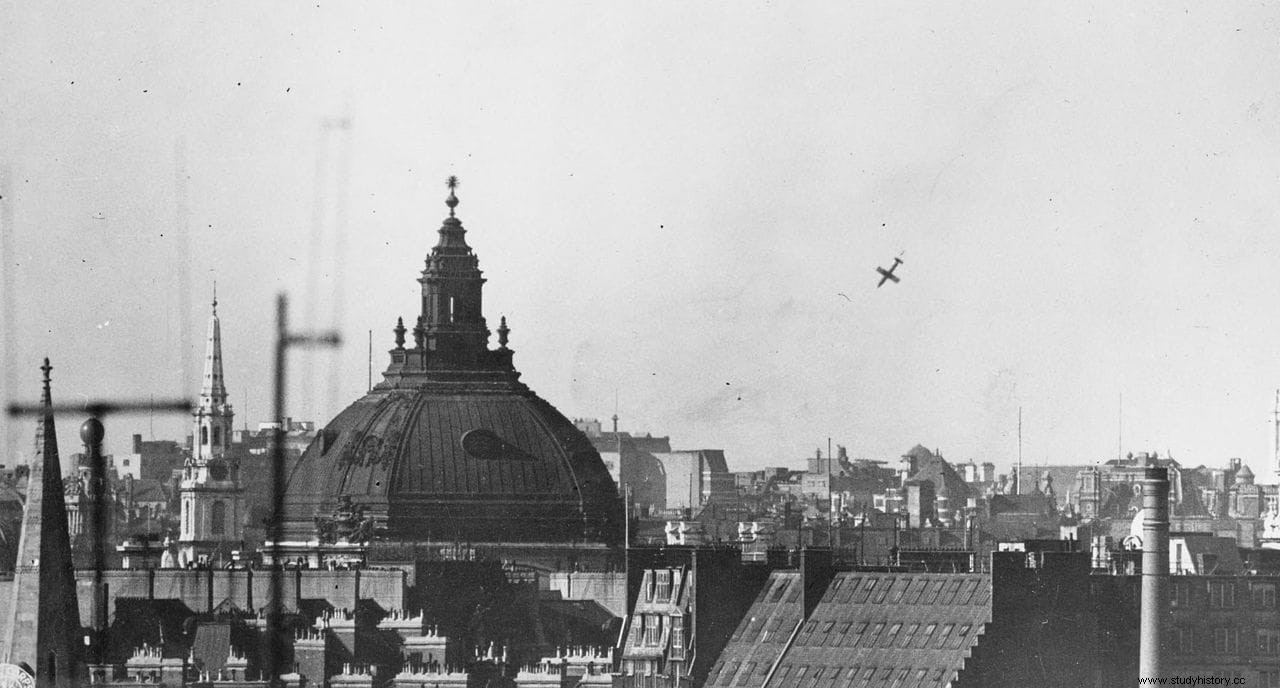
It is curious to note that, according to the studies of some historians, it is possible that Von Gröning knew that his pupil was acting as a double agent and promised him that place at the meeting imagining that he would try something against Hitler. And it is that the captain of the Abwehr he was not a Nazi and the chance of an attack that would rid the country of the one who had dragged them into that morass was juicy; This is how the muddy world of espionage has always been. Regardless, Ronnie Reed told Chapman that “whether you were successful or not, you would be terminated immediately” , to which the other gave an answer as simple as it was great:“Ah, but what an ending…”
Chapman's last service was in the summer of 1944, when he parachuted back into Cambridgeshire with the mission of reporting on the accuracy of the V-1 flying bombs, one of the last Teutonic resources in a war to come. It made them more and more difficult. True to his role, he sent data showing complete hits on targets, with hits in central London, when in reality shells often missed, landing in unpopulated areas. Consequently, the Germans never corrected the launch parameters and the V-1s were less damaging than they could have been.
He also lied about the efficacy of Hedgehog , an anti-submarine weapon developed by the Royal Navy , a complement to the smaller depth charges, which were launched in a group and exploded on contact with the U-Boat . But Chapman had an incorrigible point and, at the same time that he collaborated in saving the country from him, he again became involved in activities outside the law, participating in the doping of racing greyhounds in collaboration with the West End mafias. . His checking account grew so large that MI5 took notice; Judging him uncontrollable and considering that the contest was coming to an end, they fired him.
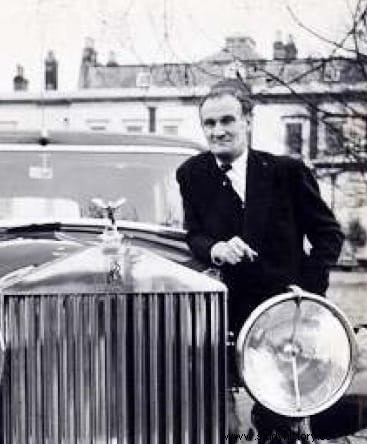
He received compensation of six thousand pounds which, added to the thousand German pounds and the illegal income, guaranteed him a more or less comfortable position. Also, he received a pardon for his pre-war crimes, which allowed him to start a new life. New to a certain extent because, as the secret services imagined, with that existence of bon vivant -casinos, women, waste- it didn't take long for him to spend all the money and go back to his old ways, mixing with blackmailers and smugglers.
The worst thing was that, as they feared, he began to sell the account of his experience as a spy compromising MI5, who denounced him accusing him of violating the Official Secrets Act. However, he was only sentenced to pay a small fine and in 1953 he published the book that we mentioned at the beginning. In fact, he was not the only one because success encouraged him to launch himself into the literary world and four years later he released a new title, I Killed to Live – The Story of Eric Pleasants as told to Eddie Chapman (I killed to live. The story of Eric Pleasants as he told it to Eddie Chapman), where he narrated the adventures of the homonymous Briton who enlisted in the Waffen SS and whom he had met in prison in Jersey.
By then he had abandoned his two girlfriends to marry Betty Farmer, a woman he met in 1938 (he was having dinner with her in that restaurant from which he had to climb out the window when the police arrived) and with whom he continued to maintain a relationship; in 1954 she Betty gave birth to a daughter, Suzanne. Chapman became an antiquarian and settled with his family in an Irish castle, recovering contact with Von Gröning, with whom he was friendly.
Meanwhile, the Norwegian girlfriend, Dagmar, served six months in prison, since she had no news of Chapman again, she thought that she had died and could not prove that her German lover was actually a British agent; somewhat aggravated because Chapman, with his characteristic irresponsibility but this time in good faith, had uprooted the Abwehr an MI5-like deal for them to keep her. They didn't meet again until 1994, when he was already so sick that he couldn't even say his name. He passed away three years later in St. Albans (England).
